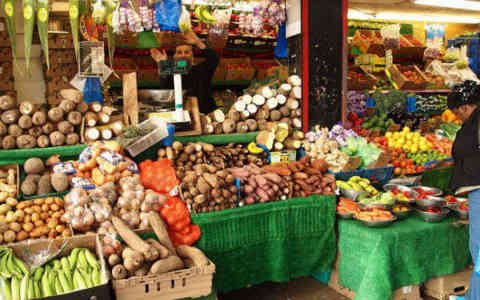Nigerians Face More Economic Challenges as Food Inflation Soars to 40% in March 2024.
Nigeria is grappling with a significant surge in food inflation, reaching an alarming 40% in March 2024, according to the latest data released by the National Bureau of Statistics (NBS).
The figures, unveiled yesterday in the NBS’s Consumer Price Index (CPI) report for March 2024, revealed a staggering 2.09 and 1.5 percentage points increase month-on-month from the previous period.
Read Also : Breaking: Speaker Suspends Lawmaker After Executive Session
Experts warn that this sharp uptick from the previous month’s rate of 31.7% underscores the mounting economic difficulties facing the nation.
The surge in food prices has been primarily attributed to hikes in essential food items such as garri, millet, yam, fish, vegetable oil, meat, fruits, and beverages.
Economists and financial analysts caution that this spike in food inflation will further strain the purchasing power of the average Nigerian and anticipate a continuation of this trend in the coming months.
Read Also : Friday Ankara outfit, 5 New ways to rock them, don’t miss out
The headline inflation rate, encompassing food inflation, surged to 33.2%, up from 31.7% recorded in February, marking a respective 2.09 and 1.5 percentage point increase month-on-month.
Analysts at CardinalStone Finance Limited foresee additional inflationary pressure following the recent electricity tariff hike. They project an inflation rate of 34.6% in April 2024, attributing it to the impact of the tariff adjustment.
Meanwhile, stakeholders in the Organised Private Sector (OPS) have voiced grave concerns over the persistent inflationary surge, warning of dire consequences for small businesses.
In response to the alarming inflationary trajectory, analysts at Alpha Morgan Capital predict a continued albeit slower inflation rate. They attribute this projection to recent monetary interventions by the Central Bank of Nigeria and government fiscal policies.
The substantial increase in food inflation highlights the urgent need for proactive measures to address the economic challenges facing Nigeria.
Stay informed with Ejes Gist News – Your Source for Credible Naija News Today, latest naija gists today and Breaking News in Nigeria Now.








